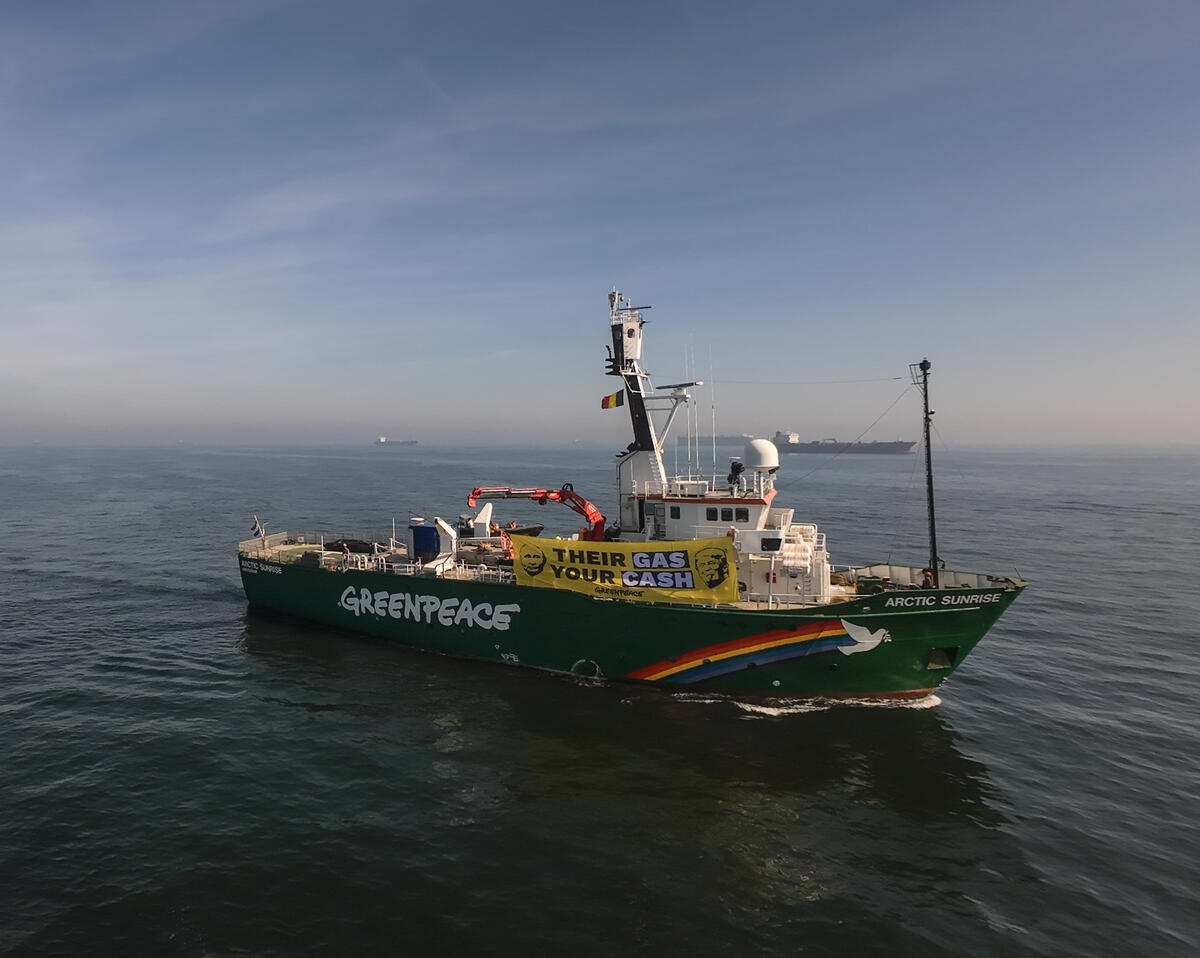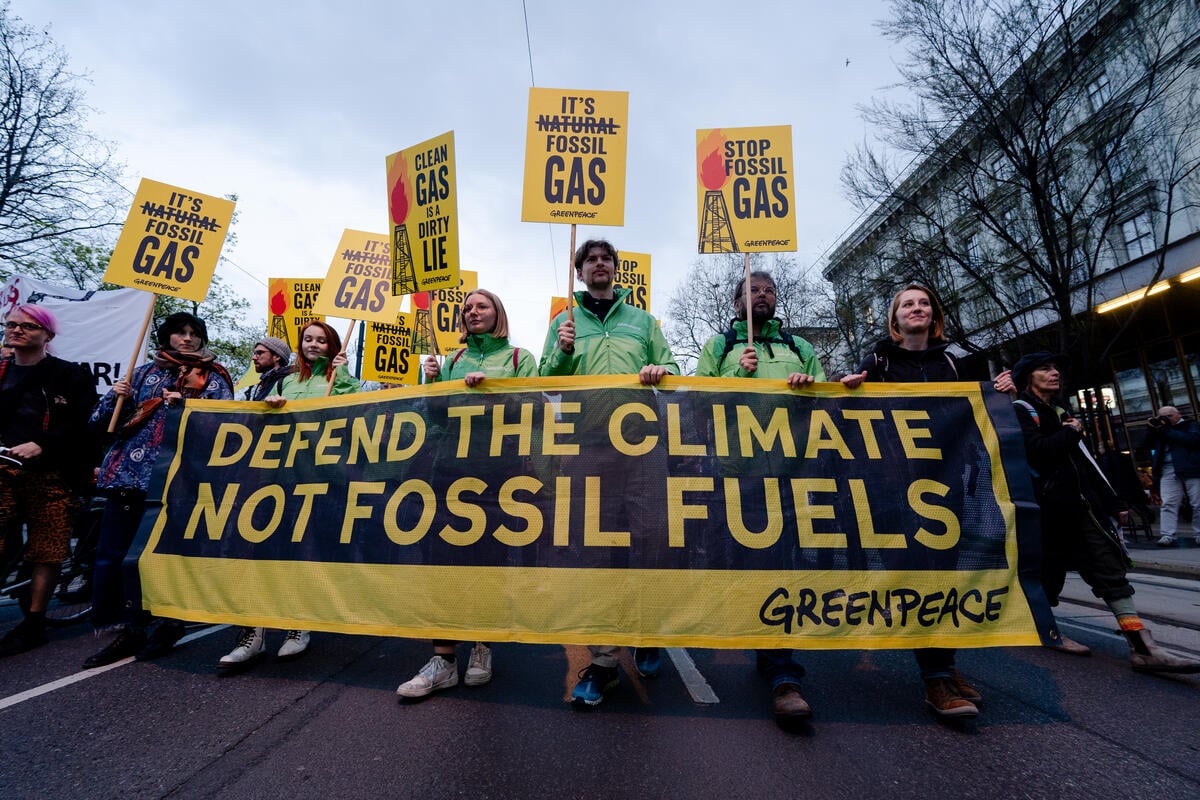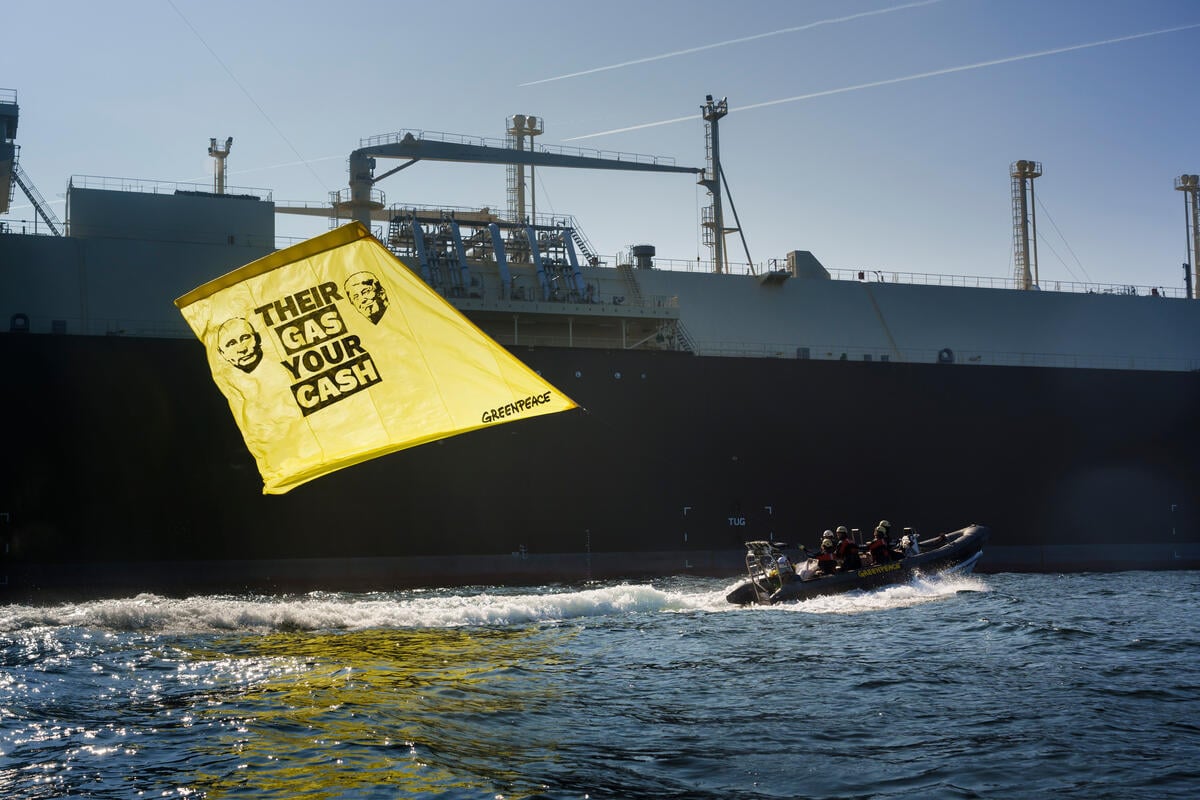Hamburg, Germany – Automakers worldwide are on track to sell an estimated 400 million more diesel and petrol vehicles than is feasible to keep global heating under 1.5°C, according to a new report published by Greenpeace Germany.[1][2] The overshoot is equivalent to approximately five times the total number of cars and vans sold globally in 2021.
Auto sales by Toyota, Volkswagen, and Hyundai/Kia are on track to exceed the 1.5°C compatible trajectory by 63 million, 43 million, and 39 million combustion engine vehicles, respectively, jeopardising global climate action, the report finds.
“Leading auto manufacturers, including Toyota, Volkswagen, and Hyundai, are transitioning far too slowly to zero-emission vehicles, which has dangerous consequences for our planet. As the climate crisis intensifies, governments from New York to Singapore are enacting stricter bans on diesel and petrol vehicles. If traditional automakers fail to electrify, they will lose out to newer, all-electric competitors and risk stranded assets. Toyota, Volkswagen and other leading automakers are on a collision course with the climate,” said Benjamin Stephan, climate campaigner at Greenpeace Germany.
Expected combustion engine vehicle sales overshoot relative to a 1.5°C carbon budget (as calculated in the Greenpeace Germany report )
| Toyota | Volkswagen Group | Hyundai/Kia | GM | |
| Overshoot in % [lower bound; upper bound]* | 164% [144%; 184%] | 118% [100%; 136%] | 142% [124%; 159%] | 57% [25%; 90% ] |
| Overshoot in million vehicles [lower bound; upper bound] | 63 million [55 million; 71 million] | 43 million [37 million; 50 million] | 39 million [35 million; 44 million] | 13 million [6 million; 21 million ] |
Traditional automakers that are slow to transition to electric vehicles face potential stranded assets and risk a significant loss of market share as climate regulations take hold. The report finds that over US$2 trillion is at risk in market capitalization and debt across the world’s 12 largest car manufacturers alone.
“As representatives from around the world convene at COP27 this week, Toyota and other automakers continue to ignore the severity of the climate crisis. Car companies need to stop selling diesel and petrol vehicles, including hybrids, by 2030 at the latest. At the same time, they must reduce supply chain emissions and ensure that workers’ rights are protected amid the transition,” said Stephan.
Toyota is the largest automaker in the world by sales, yet a recent study from Greenpeace East Asia found that electric vehicles comprised only one out of 500 cars that the company sold in 2021. Toyota received the lowest score in Greenpeace East Asia’s 2022 auto ranking due to its slow transition to zero-emission vehicles.
ENDS
Full report: The Internal Combustion Engine Bubble.
Media briefing is available from Greenpeace Germany (in English).
Notes
[1] Three transition scenarios were used in the report: 397 million is the base case, while 330 million is the lower limit of the projection and 463 million the upper limit.
[2] The report was written by researchers at the Institute for Sustainable Futures, University of Technology Sydney, the Center of Automotive Management, University of Applied Sciences (FHDW) Bergisch Gladbach, and Greenpeace Germany. Researchers determined the maximum number of internal combustion engine cars and vans that can be sold within a 1.5°C-aligned carbon budget, based on the Institute for Sustainable Futures’ One Earth Climate Model. They then projected future auto industry sales based on an assessment of battery electric vehicle sales quotas and combustion engine phase out dates announced by four major auto manufacturers: Toyota, Volkswagen, Hyundai/Kia and General Motors.
Contacts
Erin Newport, International Communications Officer, Greenpeace East Asia (Taipei), +886 958 026 791, [email protected]
Gregor Kessler, Communications Officer, Greenpeace Germany, +49 (0)151–72702918 [email protected]
Greenpeace International Press Desk, +31(0)207182470, pressdesk.int@greenpeace.org (available 24 hours)



